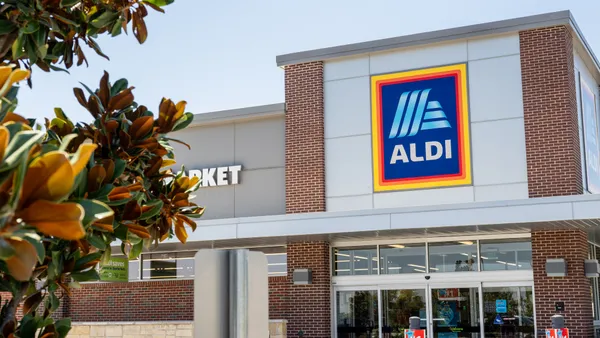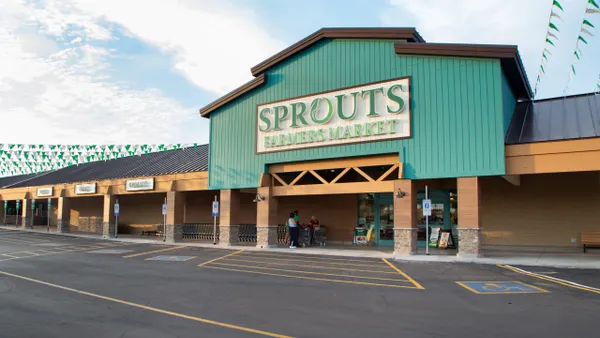Dive Brief:
- Shoppers' favorite supermarkets are predominantly regional chains, according to Consumer Reports’ 2019 Grocery Store & Supermarket Ratings. First place went to Central Market in Texas, followed by New York-based Wegmans, Heinen’s in the Midwest, Southern California’s Gelson’s and Trader Joe’s.
- The survey encompassed 96 chains and polled 75,000 shoppers about 13 aspects of the grocery stores including price, food quality and variety, customer service, healthy offerings, local food and cleanliness.
- Walmart Supercenter fell near the bottom of the list, receiving low marks in fresh store-prepared foods, customer service, checkout speed and produce quality. Whole Foods Market also earned a lower score than in past years, particularly in competitive pricing, while Kroger received average scores across the board.
Dive Insight:
Regional chains are outperforming national grocers when it comes to better customer service and offering shoppers a range of high-quality produce, local and healthy items. They are also more nimble when it comes to customer service and responding to consumer demands in a particular region, and have more flexibility with product offerings, marketing and pricing — all of which weighed heavily in customers' survey responses.
Larger chains, by comparison, often have corporate policies that create red tape for retailers, which limits their malleability in each region. There are also more employees to manage and a greater risk of poor customer service, which was demonstrated with Walmart receiving the lowest possible score for employee helpfulness and attentiveness.
Chains like Walmart, Kroger and Sprouts have invested in improved customer service as well as employee pay and perks in recent months, in an effort to empower workers and retain them in a tight labor market. Walmart promotes customer-employee interaction with its "Check Out with Me" service, which features workers toting around mobile registers.
Trader Joe’s was the only national grocery retailer to earn a spot in the top five, and has a long history of cultivating a local, neighborhood-friendly feel at its stores. Trader Joe's received a low score for local produce offerings and average scores for its meat department and produce quality and variety. The chain's high ranking in spite of these drawbacks speaks volumes to the cult following that it has created. Cult favorites H-E-B and Aldi were also high on the list.
In the natural grocery space, Fresh Thyme Farmers Market, Sprouts Farmers Market, and Natural Grocers received similar scores, with Fresh Thyme Market sitting one point higher than its two key competitors. Whole Foods' low marks for pricing shows that Amazon’s attempts to slash prices haven’t been as successful as the company hoped. The study revealed an industry-wide issue when it comes to pricing organic goods, with no one snagging a top rating for organic options.
Warehouse club Costco snuck into tenth place on the list with strong scores in store brand quality and its meat department, as well as competitive prices. Competitor Sam’s Club struggled in these categories and received the lowest score possible in local produce selection.
In a separate poll released this week, Consumer Reports listed Shipt as the top-ranked online grocery company, beating out competitors Instacart, Peapod, FreshDirect and Amazon's Prime Now and Fresh services.








